
Angel Barco
Instituto de Neurociencias, UMH-CSIC
Spain
EMBO | EMBL Symposium
This conference will take place at EMBL Heidelberg, with the option to attend virtually. Please see EMBL’s COVID-19 safety recommendations if attending the on-site event.
This symposium explores the many ways by which the genome is regulated in the brain in order to support neural function and plasticity. The extraordinary complexity of the brain places unique demands on the genome: How are several hundreds of different neural types specified by the same genetic instructions? Does the genome provide information that guides their connectivity? How is neural activity regulated by and how does it affect genome output? We will explore these fundamental questions from the standpoint of transcriptional regulation and chromatin-based processes, including but not limited to histone marks and variants, chromatin topology and folding, coding and noncoding RNAs, transposable elements, and DNA modifications.
The conference aims to bring together neuroscientists and experts in genome regulation. It will cover a broad range of experimental approaches and model systems, from biochemistry to single-cell genomics, from worms to human organoids. Overall, the conference will address the impact of genome regulation on unique features of the brain — its excitable nature, exquisite response to the environment and parallel processing capacity — with the longer-term vision of understanding how defective genome regulation can give rise to brain disease.

Instituto de Neurociencias, UMH-CSIC
Spain

University of California, San Diego
USA

University of Pennsylvania
USA
(remotely)

New York University
USA

University of Tokyo
Japan

Ludwig Maximilian University of Munich and
Helmholtz Zentrum München
Germany

EPFL
Switzerland

University of Pennsylvania
USA

Lund University
Sweden

The Rockefeller University
USA

The University of Western Australia
Australia

Columbia University
USA

German Cancer Research Center
Germany
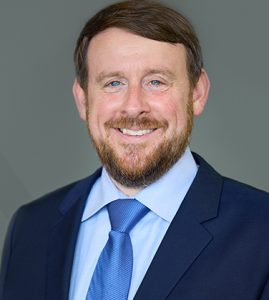
Icahn School of Medicine at Mount Sinai
USA

Princeton University
USA

EMBL Heidelberg
Germany

Princeton University
USA

Institute of Science and Technology Austria
Austria
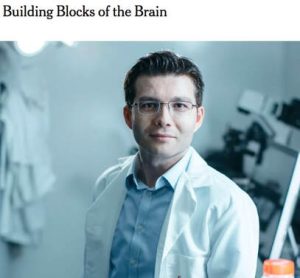
Stanford University
USA
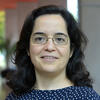
Max Delbrück Center for Molecular Medicine
Germany
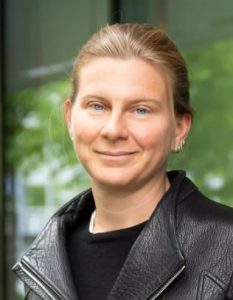
Max Planck Institute for Biology of Ageing
Germany

University of Pennsylvania
USA
(remotely)
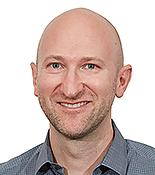
EMBL Rome
Italy

Ludwig Maximilian University of Munich and
Helmholtz Zentrum München
Germany

EMBL Heidelberg
Germany
Got something to say? Tweet it! #EESBrainGenome
For registered participants, recorded talks will be accessible on demand for 2 weeks after the end of the event, unless indicated otherwise.
Programme is subject to change
| Time (Europe/Berlin) | Speaker |
|---|---|
| 12:00 – 13:30 | Registration and refreshments (light lunch) |
| 13:30 – 13:45 | Opening remarks |
| 13:45 – 18:00 | Session 1: From one genome to many neurons: neurodevelopment and neural diversity Chair: Gaia Novarino – Institute of Science and Technology Austria, Austria |
| 13:45 – 14:15 | Chromatin-level regulation of neural stem cell fate during mouse neocortical development Yukiko Gotoh – The University of Tokyo, Japan Not available on demand |
| 14:15 – 14:45 | Epigenetic etiology of intellectual disability Angel Barco – Instituto de Neurociencias, UMH-CSIC, Spain Not available on demand |
| 14:45 – 15:00 | Joint epigenome profiling reveals cell-type-specific gene regulatory programs in human cortical organoids Boyan Bonev – Helmholtz Zentrum München, Germany |
| 15:00 – 15:15 | Deep learning from scMultiomes suggests conserved gene regulatory codes for mammalian and avian brain cell types Nikolai Hecker – VIB-KU Leuven Center for Brain & Disease Research, Belgium |
| 15:15 – 15:45 | Transposable elements and the evolution of the human brain Johan Jakobsson – Lund University, Sweden |
| 15:45 – 16:15 | Coffee Break and Meet the speakers with Yukiko Gotoh, Angel Barco, Johan Jakobsson |
| 16:15 – 16:45 | From Stem Cells to Organoids to Assembloids and Toward Building Human Circuits in Living Systems Sergiu Pasca – Stanford University, USA |
| 16:45 – 17:00 | Mapping Neuronal Networks in Cerebral Organoids with Single-cell Transcriptional Resolution Ramsey Najm – Institute of Molecular Biotechnology, Austria |
| 17:00 – 17:15 | Primate-expressed EPIREGULIN promotes basal progenitor proliferation in the developing neocortex Mareike Albert – Technical University Dresden, Germany Not available on demand |
| 17:15 – 17:45 | Reconstructing cellular biographies Alex Schier – Biozentrum, University of Basel, Switzerland |
| 17:45 – 18:00 | Development and evolution of the mammalian cerebellum at single-cell resolution Mari Sepp – Heidelberg University, Germany Not available on demand |
| 18:00 – 19:00 | Poster previews and Meet the speakers with Sergiu Pasca and Alex Schier |
| 19:00 – 20:30 | Canteen dinner |
| 20:30 – 22:00 | Networking in the ATC Rooftop lounge |
| Time (Europe/Berlin) | Speaker |
|---|---|
| 09:15 – 12:15 | Session 2: Genomic regulation of brain plasticity and behavior Chair: Boyan Bonev – Helmholtz Zentrum München, Germany |
| 09:15 – 09:45 | Autism-associated chromatin dysregulation hinders synaptic plasticity Gaia Novarino – Institute of Science and Technology Austria, Austria |
| 09:45 – 10:00 | Sites of transcription initiation drive mRNA isoform selection in the brain Valerie Hilgers – Max Planck Institute of Immunobiology and Epigenetics, Germany |
| 10:00 – 10:15 | Adaptation, phenotypic plasticity and the brain in a changing world Celia Schunter – University of Hong Kong, Hong Kong |
| 10:15 – 10:45 | Coffee Break and Meet the speakers with Gaia Novarino |
| 10:45 – 11:15 | Protein monoaminylation in brain: novel mechanisms of neural development, plasticity and disease Ian Maze – Howard Hughes Medical Institute / Icahn School of Medicine at Mount Sinai, United States of America |
| 11:15 – 11:30 | Manipulation of neural stem cell fates through activation of global protein translation rates using a novel CRISPR approach Stefan Stricker – Ludwig Maximilians University of Munich / Helmholtz Zentrum, Germany |
| 11:30 – 11:45 | The regulatory determinants of modern human brain development and evolution Alessandro Vitriolo – Human Technopole, Italy |
| 11:45 – 12:15 | Epigenetic editing for the study of addiction Elizabeth Heller – University of Pennsylvania, USA |
| 12:15 – 13:45 | Lunch and Meet the speakers with Ian Maze and Elizabeth Heller |
| 13:45 – 17:00 | Session 2: Genomic regulation of brain plasticity and behavior (continued) Chair: Ryan Lister – The University of Western Australia, Australia |
| 13:45 – 14:15 | Pheromone communication in ants Daniel Kronauer – The Rockefeller University, USA Not available on demand |
| 14:15 – 14:30 | Convergent and complementary selection shaped the evolution of social behavior in bees Sarah Kocher – Princeton University, United States of America |
| 14:30 – 14:45 | L1 retrotransposons drive human neuronal transcriptome complexity and functional diversification Diahann Atacho – Lund University, Sweden |
| 14:45 – 15:15 | EGL-30/GNAQ activation rejuvenates age-related cognitive decline in worms and mammals Coleen T. Murphy – Princeton University, USA |
| 15:15 – 15:45 | Coffee Break and Meet the speakers with Daniel Kronauer, Coleen Murphy and Carolyn McBride |
| 15:45 – 16:15 | Socially induced brain plasticity and behavioral reprogramming in ants Roberto Bonasio – University of Pennsylvania, USA (remote talk) |
| 16:15 – 16:30 | Nup153 regulates activity dependent-gene expression in neurons Abhinav Soni – German Center for Neurodegenrative Diseases, Dresden, Germany Not available on demand |
| 16:30 – 17:00 | A map of neuronal diversity on mosquito antennae reveals rampant co-expression and co-option of olfactory receptors Carolyn McBride – Princeton University, USA |
| 17:00 – 17:30 | Flash talks Bonefas Katherine #53, Porrua Odil #65, Kentro James #71, Martelli Carlotta# 81, Rowland Megan #93, Soliman Azza #99, Winter Julia #111, Yip Kwok Yui Reymond (Tony) #113 |
| 17:30 – 19:00 | Poster Session 1 (odd) with beer and light refreshments |
| 19:15 | Free evening (bus downtown) |
| Time (Europe/Berlin) | Speaker |
|---|---|
| 09:30 – 12:45 | Session 3: Interplay between gene regulation and neuronal activity Chair: Lindy McBride – Princeton University, USA |
| 09:30 – 09:45 | Histone H3K79 methylation demarcates an epigenetic barrier of progenitor differentiation and neuronal maturation in cerebral cortex and hippocampus development Tanja Vogel – University of Freiburg, Germany |
| 09:45 – 10:00 | Condensins restrict retrotransposable element expression and activity in neural stem cells to promote Drosophila brain development Michelle Longworth – Cleveland Clinic Lerner Research Institute, United States of America |
| 10:00 – 10:30 | Novel mechanisms of endogenous and induced neurogenesis Magdalena Götz – Ludwig Maximilian University of Munich and Helmholtz Zentrum München, Germany |
| 10:30 – 11:00 | Coffee Break and Meet the speakers with Magdalena Götz |
| 11:00– 11:30 | Transcriptional regulation of inhibitory synapses impacts place field coding and stability Brenda Bloodgood – University of California, San Diego, USA |
| 11:30 – 11:45 | Spatial enhancer activation determines inhibitory neuron identity Elena Dvoretskova – Max Planck Institute for Biological Intelligence, Germany Not available on demand |
| 11:45– 12:15 | Chromatin plasticity predetermines neuronal eligibility for memory trace allocation Johannes Gräff – EPFL, Switzerland |
| 12:15 – 12:45 | Evolution of neural diversity Claude Desplan – New York University, USA |
| 12:45 – 14:15 | Lunch and Meet the speakers |
| 14:15 – 17:15 | Session 4: Chromatin variations in the brain Chair: Stefan Stricker – Ludwig Maximilians University of Munich / Helmholtz Zentrum, Germany |
| 14:15 – 14:45 | The effect of social experience on gene expression, circuit function and behaviors Pelin Volkan – Duke University, USA |
| 14:45 – 15:00 | linc-mipep and linc-wrb encode micropeptides that regulate chromatin accessibility in vertebrate-specific neural cells Valerie Tornini – Yale University, United States of America |
| 15:00 – 15:15 | Regulatory genomics of primate astrocyte evolution Aleksandra Pekowska – Nencki Institute of Experimental Biology, Polish Academy of Sciences, Poland |
| 15:15 – 15:45 | Olfactory receptor mRNAs as “selfish” lnRNAs that promote transcriptional singularity Stavros Lomvardas – Columbia University, USA |
| 15:45 – 16:15 | Coffee Break and Meet the speakers with Pelin Volkan, Stavros Lomvardas and Ana Martin-Villalba |
| 16:15 – 16:45 | The molecular secrets of stemness in the adult healthy and injured brain Ana Martin-Villalba – German Cancer Research Center (DKFZ), Germany |
| 16:45 – 17:00 | HP1 Deficiency Results in De-Repression of Endogenous Retroviruses and Induction of Neurodegeneration via Complement Andrew Newman – Charité Universitätsmedizin Berlin, Germany |
| 17:00 – 17:15 | Epigenetically distinct synaptic architecture in clonal compartments in the teleostean dorsal pallium Yasuko Isoe – Harvard University, United States of America |
| 17:15 – 17:45 | Flash talks Burgos Ruiz Ana María #54, Castilla-Vallmanya Laura #56, Gracia Diaz Carolina #66, Horvath Vivien #68, Jacobs Jelle #70, Kitanishi Yuki #72, Krick Keegan #74, Mall Moritz #80, Schofield Mia #96, Villamor Paya Marina #108, Wiseglass Gil #112 |
| 17:45 – 19:15 | Poster Session 2 (even) with beer and snacks |
| 19:15 – 21:00 | Conference dinner |
| 21:00 – 23:00 | Live music and drinks |
| Time (Europe/Berlin) | Speaker |
|---|---|
| 09:15 – 12:30 | Session 4 (continued): Chromatin variations in the brain Chair: Elizabeth Heller – University of Pennsylvania, USA |
| 09:15 – 09:45 | Specialization of 3D genome structure in different brain cells and cell state Ana Pombo – Max Delbrück Center for Molecular Medicine, Germany |
| 09:45 – 10:00 | L1 RNAs regulate cortical development by tuning PRC2 activity Damiano Mangoni – Istituto Italiano di Tecnologia, Italy |
| 10:00 – 10:30 | The operational principles of neuron-microglia circuits Anne Schaefer – Max Planck Institute for Biology of Ageing, Germany |
| 10:30 – 11:00 | Coffee Break and Meet the speakers with Ana Pombo, Anne Schaefer, Ryan Lister and Kyung Min Noh |
| 11:00 – 11:30 | Human prefrontal cortex gene regulatory dynamics from gestation to adulthood at single-cell resolution Ryan Lister – The University of Western Australia, Australia |
| 11:30 – 11:45 | SATB2 organizes the 3D genome architecture of cognition in cortical neurons Galina Apostolova – Medical University of Innsbruck, Austria |
| 11:45 – 12:00 | A PRC2 network controls neural progenitor death, division, and differentiation Jamy Peng – St Jude Children’s Research Hospital, United States of America |
| 12:00 – 12:30 | Functional single-cell genomics of transcription factors and chromatin regulators associated with neurodevelopmental disorders Kyung-Min Noh – EMBL Heidelberg, Germany |
| 12:30 – 12:45 | Closing Remarks and Poster prize |
| 12:45 – 13:15 | Packed lunch and departure |
On-site registration fees include admission, conference materials, COVID-19 safety measures, meals and coffee breaks. Participants are expected to book and pay their own accommodation and travel expenses.
Virtual registration fees include access to all of the talks (livestreamed and on demand) and facility to submit questions.
| On-site Academia | € 700 |
| On-site PhD Student | € 600 |
| On-site Industry | € 900 |
| Virtual Academia | € 200 |
| Virtual PhD Student | € 150 |
| Virtual Industry | € 250 |
NO visa support letters will be issued until payment of the registration fee is confirmed.
Accredited journalists may be eligible to register for complimentary press registration. Registrants may be required to provide accreditation or equivalent proof of press membership after registration. Please contact Iva Gavran for more information. Please note that we do not offer complimentary registrations for editors of scientific journals.
Registration will be on a first come, first served basis. Your place can only be confirmed after payment of the registration fee. If you are added to our waiting list, please consider taking advantage of our offerings to participate virtually.
On-site participants: Types of payments accepted are international bank transfers and credit card payments.
Virtual participants: We are only able to accept card payments. In exceptional cases we can accept bank transfers. Please contact events@embl.de for details.
Only participants registering to attend the on-site event are eligible to submit an abstract. Abstracts will not be accepted from virtual participants.
After registration you can submit your abstract via a separate link that will be provided in the email confirmation. Alternatively, you can access the link on the confirmation page directly after registering. The same login credentials are used for both processes.
Please note:
Abstract body: The limit of 2000 characters refers to manually typed text and excludes spaces. If an error occurs try using a different web browser (preferably Google Chrome or Mozilla Firefox).
If you copy-paste the text into the form, hidden formatting might still be included which may cause the text to exceed the 2,000 character limit resulting in an error message. We recommend you clear all formatting before pasting in the text.
If you have special symbols in your text, make sure you are using Unicode characters, otherwise these will not be recognised.
Title: The title should not exceed 20 words. Only the first word of the title should start with a capital letter and the rest should be lowercase.
Authors and affiliations: Please fill in the author’s details as requested in the online form. The compulsory fields are: First Name, Last Name, Organisation Name (Affiliation or Company), Country and Email.
Kindly mark only one author in the role of First Author and please don’t forget to indicate who will be the Presenter.
Please enter your co-authors correctly via the system by adding accounts together with their organisation/institute. Do not copy-paste them into the body of the abstract text, as they will not be indexed in the abstract book.
Presentation types: When submitting your abstract, you can apply for an oral or poster presentation. A selection process will take place with the results announced 2-3 weeks after the abstract submission deadline.
For detailed instructions on how to submit a conference abstract, follow the instructions provided in this video.
Please check our FAQs pages for further information on how to submit an abstract.
Limited financial assistance is provided by the EMBL Advanced Training Centre Corporate Partnership Programme and EMBO, as well as other partner institutions, in the form of both registration fee waivers and travel grants. These are available for on-site participants at EMBL Conferences and EMBO|EMBL Symposia, and for on-site and virtual participants at EMBO Workshops. We are currently working on securing funding for all virtual participants, and ask that you please apply for financial assistance for both on-site and virtual participation.
Your place in the meeting is only confirmed by paying the registration fee, which is mandatory even when receiving a fee waiver.
The fee waiver will cover the registration sum that you have paid to attend the course or conference.
The travel grant will cover the cost of travel to an on-site event (airfare, train, bus, taxi, accommodation, visa, and/or registration fees*) and is provided up to specified caps which are normally as follows:
–up to €400 for participants travelling to an EMBL Conference or EMBO|EMBL Symposium from within Europe.
–up to €1000 for participants travelling to an EMBL Conference or EMBO|EMBL Symposium from outside Europe.
–up to €500 for any participant travelling to an EMBO Workshop.
–up to €1000 for any participant working in Chile, India, Singapore or Taiwan travelling to an EMBO Workshop.
–up to €700 for any participant working in Croatia, Czech Republic, Estonia, Greece, Hungary, Italy, Lithuania, Luxembourg, Poland, Slovenia, and Turkey travelling to an EMBO Workshop.
*Registration fees are only covered for EMBO Workshops
–up to €800 for participants travelling to an EMBL Conference or EMBO|EMBL Symposium from within Europe as well as the cost of registration.
–up to €1,800 for participants travelling to an EMBL Conference or EMBO|EMBL Symposium from outside Europe as well as the cost of registration.
The organisers may reduce the grant cap to accommodate more participants. Recipients will be notified of their travel cap amount when they are informed of the outcome of their application. Original receipts must be provided with your signature for all costs incurred within two months of completion of travel. Scanned copies cannot be accepted.
On-site participants
You may apply for financial assistance when submitting your abstract. In your application you will be asked to answer questions regarding why your lab cannot fund your attendance and how your attendance will make a difference to your career. Application for financial support will not affect the outcome of your registration application.
Virtual participants
If you are attending virtually, you can apply for financial assistance in the submission portal by the abstract deadline. Read the instructions on how to apply for financial assistance. Only submissions for financial assistance will be accepted. Presentation abstracts cannot be submitted here and will be declined.
In your application you will be asked to summarise your current work, answer questions regarding why your lab cannot fund your attendance, and how your attendance will make a difference to your career. Application for financial support will not affect the outcome of your registration application.
The scientific organisers will select the recipients of all financial assistance during the abstract selection process. Results will be announced approximately 6 – 8 weeks before the event start date, however for some events this may be delayed. Selection results do not impact your admission to the meeting. Selection is based on scientific merit, your current work or study location, the reasons for needing financial support, and the impact this event will have on your career.
Costs will be reimbursed after the meeting only once a reimbursement form and original receipts (from travel costs) have been received.
View our list of external funding opportunities and information on attending a conference as an event reporter.
For further information about financial assistance please refer to the FAQ page.
Accommodation is not included in the conference registration fee.
As further changes in our events are possible due to COVID-19, you should book flights, trains and hotels with flexible options and favourable cancellation conditions.
The hotels below have rooms on hold for participants until 27 March 2023, in some cases at special rates. Please email the hotel directly, quoting the booking code EES23-02 to confirm the exact price of the room.
Conference shuttle buses are free of charge for participants, and depart from designated bus stops near the hotels to EMBL and back, mornings and evenings.
Conference shuttle bus schedule
The bus stops for this conference are:
View Conference shuttle bus stops and hotels in a larger map. Please note that not every bus stop will be used for every event.
Address: EMBL, Meyerhofstraße 1, 69117 Heidelberg, Germany. For further information on getting to EMBL Heidelberg visit Public Transportation to the Venue. For information about accommodation and local transportation please refer to the FAQ page.
All meals and coffee breaks are included in the registration fee. Our catering staff will prepare a wide variety of vegetarian meals, meat and fish dishes, soups, pasta, fresh fruit and vegetables, as well as a variety of desserts.
Please wear your badge at all times when serving yourself.
No food or drinks are allowed in the auditorium.
There are lockers available next to the stairs leading down into the Auditorium. You will find some of those equipped with sockets to charge your smartphone/tablet etc.
In most places the electricity is 220 volts AC (50 cycles). An adaptor and a plug that fits the German socket may be needed for your appliances/laptop (i.e. American, Japanese, etc.). A USB charging station for electronic devices is available at the registration desk.
If you are interested in purchasing an EMBL souvenir (products presented in the glass display in the registration area), please ask at the registration desk for more information.
Please read EMBL’s COVID-19 safety policy for on-site events.
Do not smoke in any EMBL building.
Eating and drinking is prohibited in the Auditorium and all laboratories.
Do not enter any restricted areas or the laboratories unless instructed to do so.
If first aid is required …
In case of fire …
Beyond first aid…
Please remember to bring your own medication, if needed, to the conference. Note that the next pharmacy is a 4-minute drive from the EMBL, but for many medications you will be required to see a doctor to get a prescription.
Ensure in advance that your medical insurance will cover you during your visit in the event that you do need to see a doctor while in Heidelberg. In any case, the EMBL Course and Conference Office will assist you to get to the pharmacy and a doctor of your choice if necessary.
Wi-Fi is available everywhere on the premises using the EMBL-Events network and the event specific password, which will be provided on site. The eduroam network (secure, world-wide roaming access service developed for the international research and education community) is also available.
‘’Lost and Found’’ are kept at the registration desk until the end of the conference.
There are lockers available on-site to store your luggage, which require a 2 EURO coin to operate. There is another luggage room on level E0, which is free to use but remains unlocked during the conference.
There is a nursing room available in the ATC Rooftop Lounge on level A29.
During the conference an EMBL Photographer may be taking photographs. If you would not like to appear in these, please inform the photographer or a member of the Course and Conference Office.
We can help printing your boarding passes/train ticket. Please send it to events@embl.de and collect your print-outs at the registration desk.
There is a room for prayer, mediation and yoga located on level E0 behind the Auditorium. Please be respectful of other participants using the room.
A variety of activities in Heidelberg can be found on the website of Heidelberg Marketing.
During the event we provide conference shuttle buses to and from EMBL. In addition, there is the public bus 39A that serves the EMBL campus and taxis can be easily booked at any time. Information on the conference shuttle buses can be found on the individual event website and more detailed information on travelling to EMBL can be found on our Travel Information page.
| Hello | Hallo |
| Goodbye | Auf Wiedersehen |
| Good morning | Guten Morgen |
| Good afternoon | Guten Tag |
| Good evening | Guten Abend |
| Good night | Gute Nacht |
| I’m sorry | Tut mir leid |
| Excuse me… | Entschuldigen Sie |
| How are you? | Wie gehts? |
| I’m fine thanks. And you? | Mir geht es gut , danke, und dir/Ihnen? |
| What is your name | Wie heisst du? Wie heissen Sie? |
| My name is | Ich heisse |
| Do you speak English | Sprechen Sie Englisch? |
| I don’t understand | Ich verstehe nicht |
| Please speak more slowly | Können Sie bitte langsamer sprechen |
| Thank you | Dankeschön |
| Where is the toilet? | Wo ist die Toilette? |
| Please call me a taxi | Bitte rufen Sie mir ein Taxi |
| How do I get to….? | Wie komme ich zum/zur…..? |
| A beer/two beers please | Ein Bier/zwei Bier bitte |
| A glass of red/white wine please | Ein Glas Rot/Weisswein bitte |
| The menu, please | Die Speisekarte, bitte |
| Is there a local speciality? | Gibt es eine Spezialität aus dieser Gegend? |
| I’m Vegetarian | Ich bin Vegetarier |
| It was delicious | Es war hervorragend |
| The bill, please | Die Rechnung, bitte |
| I have a headache | Ich habe Kopfschmerzen |
| I have a sore throat | Ich habe Halsschmerzen |
| My stomach hurts | Ich habe Magenschmerzen |
| I’m allergic to | Ich bin allergisch gegen |
| I need a doctor who speaks English | Gibt es einen Arzt, der Englisch spricht? |
Please note that only on-site participants are able to submit abstracts and participate in the poster sessions.
We are using an event platform for this conference. More information about the platform will be shared ahead of the conference.
Additional information can be found in our Code of Conduct.
It is important to stay healthy and move around, especially when you are attending an event virtually. We have put together a few coffee break stretches and yoga videos in the conference platform for you to enjoy during the event.
Please use the Q&A function in the event platform.
If you have any other questions, you can go to the Help Desk in the event platform. Click on ‘more’ on the top menu and click Help Desk.
The programme is planned based on the Europe/Berlin time zone, unless otherwise stated. Please take your time zone into consideration when planning your attendance.
Please find additional information including FAQs, terms and conditions, COVID-19 safety policy and travelling to EMBL on our Information for Participants page.
COVID-19 information for on-site events at EMBL Heidelberg can be found in our COVID-19 FAQs.
Bronze sponsor
Event sponsors
AAAS Science Advances
Cell Research
Event supporters
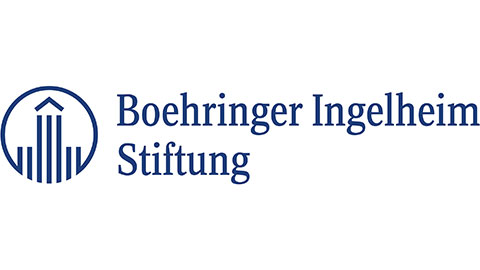
Media partners
EMBO reports, an EMBO Press journal
FEBS Journal, a FEBS Press journal
FEBS Letters, a FEBS Press journal
International Union of Biochemistry and Molecular Biology
Bio Essays, a Wiley Online Library
Advanced Biology, a Wiley Online Library
Sponsorship opportunities
We offer a variety of event sponsoring possibilities, with the flexibility to select a set sponsorship package or combine individual sponsorship options to suit your event budget. Discounts are available for companies sponsoring multiple events at EMBL Heidelberg. View other conferences, or contact sponsorship@embl.de for further information.
If you are interested in becoming a media partner of this event, please visit our media partnerships webpage.
EMBL wishes to warn sponsors of EMBL conferences and courses of fraudulent schemes purporting to offer sponsorship opportunities on behalf of EMBL or affiliated with EMBL officials. One current scam campaign of which we are aware is conducted using the name ‘Judy Eastman’ (judy@gopcontact.a2hosted.com) and entails approaches to sponsors offering sponsorship opportunities on EMBL’s behalf. Please be kindly advised that all relevant communication regarding sponsorship of EMBL conferences, symposia and courses is handled by EMBL directly and is sent from an official EMBL account. EMBL does not work with any external providers on sponsorship acquisition.
Please also note that:
Suspicious communications purportedly from, for or on behalf of EMBL should be reported to EMBL at the following email address sponsorship@embl.de.
EMBO | EMBL Symposia promote scientific communication and collaboration in the European research area. They provide scientists with a platform to discuss and exchange ideas on forward-looking topics and new developments in the life sciences.
Topics emphasise upcoming developments and the interdisciplinary nature of related fields. Jointly funded and organised by EMBO and EMBL – and complementary to their respective courses, workshops, and conference programmes – the symposia promote scientific communication and collaboration.
All symposia are held in the EMBL Advanced Training Centre (ATC) in Heidelberg, Germany, or virtually.
Want to let others know you’re attending this event? Take a look at our shareable media and feel free to use them in your social media channels or presentations.
Date: 25 - 28 Apr 2023
Location: EMBL Heidelberg and Virtual
Venue: EMBL Advanced Training Centre
Deadline(s):
Abstract submission: Closed
Registration (On-site): Closed
Registration (Virtual): Closed
Organisers:
Contact: Iva Gavran